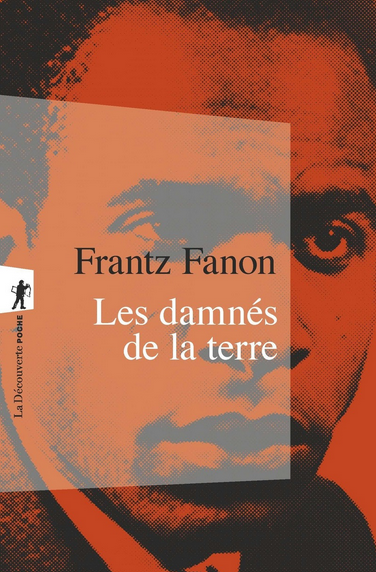By René Wadlow
Frantz Fanon (1925-1961) whose birth anniversary we mark on July 20, was a French psychologist, writer, and participant in the Algerian struggle for independence (1954-1962). He was born in Martinique, then a French colony which now has the status of a Department of France. The bulk of the population are of African descent, having been brought to the West Indies as slaves. Although the basic culture is French, some in Martinique are interested in African culture, and as in Haiti, there are survivals of African religions, often incorporated into Roman Catholic rites.
In 1940, as France was being occupied by the German forces and a right-wing nationalist government was being created in the resort city of Vichy, sailors favorable to the Vichy government took over the island and created a narrow-nationalist, racist rule. Fanon, then 17, escaped to the nearby British colony of Dominica, and from there joined the Free French Forces led by General De Gaulle. Fanon fought in North Africa and then in the liberation of France.
Once the war over, he received a scholarship to undertake medical and then psychiatry training in Lyon. His doctoral thesis on racism as he had experienced it in the military and then during his medical studies was published in French in 1952 and is translated into English as Black Skin, White Masks.
In 1953, he was named to lead the Psychiatry Department of the Blida-Joinville Hospital in Algeria shortly before the November 1954 start of the war for independence in Algeria. He treated both Algerian victims of torture as well as French soldiers traumatized by having to carry out torture. He considered the struggle for independence as a just cause, and so in 1956 he resigned his position and left for Tunisia where the leadership of the independence movement was located. As a good writer, having already published his thesis followed by a good number of articles in intellectual journals, he was made the editor of the Algerian independence newspaper. There were a number of efforts by the French security services to kill him or to blow up the car in which he was riding. Although wounded a number of times, he survived.
In 1959, the British colony of the Gold Coast was granted independence and took the name of Ghana under the leadership of Kwame Nkrumah. Nkrumah was a pan-African, having participated in a number of pan-African congresses starting in the 1930s. He viewed the independence of the Gold Coast as the first step toward the liberation of all colonies in Africa, to be followed by the creation of African unity in some sort of federation. Ghana attracted a good number of activists of anti-colonial movements. Fanon was sent to Ghana to be the Algerian Independence Movement (Front de Libération Nationale, FLN) ambassador to Ghana and as the contact person toward other independence movements.
From his anti-colonial activity, he wrote his best-known study of colonialism, the mental health problems it caused, and the need for catharsis Les damnés de la terre, translated into English as The Wretched of the Earth. The title comes from the first line of the widely sung revolutionary song L’Internationale. For French readers, there was no need to write the first word of the song which is “Arise” as in “Arise, you Wretched of the Earth” (“Debout, les damnés de la terre”). The meaning of the book in English would have been clearer had it been called Arise, Wretched of the Earth.
Fanon was very ill with leukemia, and Les damnés de la terre was written by dictation to his French-born wife that he had married during his medical studies. He received in the hospital the first copies of his book three days before his death. He had been taken for treatment to a leading hospital just outside Washington, DC by the Central Intelligence Agency (CIA). The role of the CIA in support of, or just infiltrating for information, the Algerian independence movement is still not fully clear. Frantz Fanon was buried in a town in Algeria then held by the independence forces. The 1962 peace agreement with France granting independence followed shortly after his death. Fanon is recalled warmly in Algeria for his part in the independence struggle.
The final four pages of Les damnés de la terre are a vital appeal for a new humanism and for a cosmopolitan world society based on the dignity of each person. For Fanon, there is a need to overcome both resignation and oppression and to begin a new history of humanity.
Note
Two useful biographies of Fanon in English are David Caute, Frantz Fanon (New York: Viking Press, 1970), and Irene Gendzier, Frantz Fanon. A Critical Study (New York: Pantheon Books, 1973)
Prof. René Wadlow is President of the Association of World Citizens.


